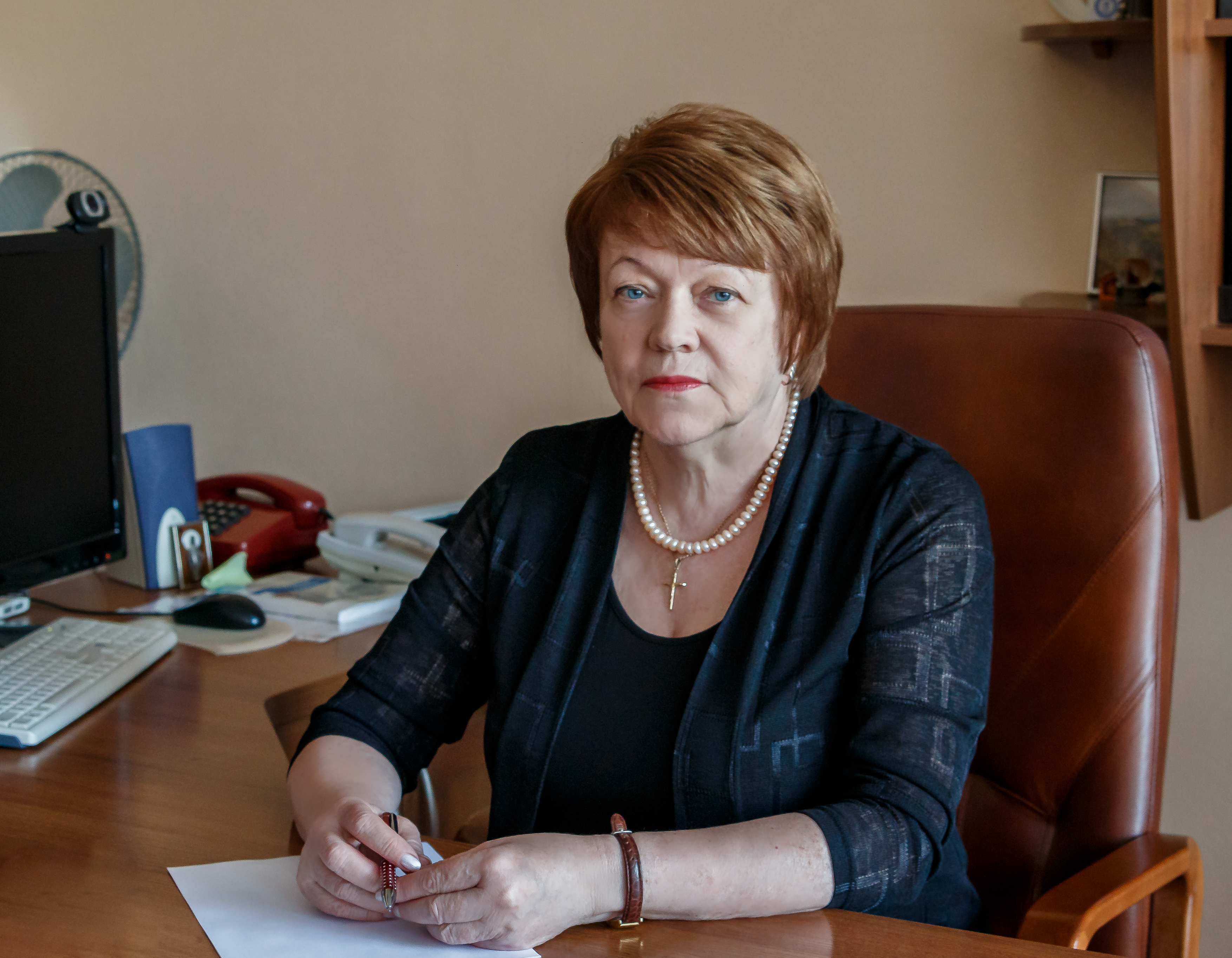Cooperation Lights the Way

Professor Emiliya Kalamiyets. (COURTESY PHOTO)
By?LONG?Yun?&?WANG?Zhaoyue
"I think international cooperation is the basis for sci-tech advancement," Emiliya Kalamiyets, a member at the National Academy of Sciences of Belarus, told Science and Technology Daily recently.
As an internationally renowned biologist, she has been working in the field of microbiology for almost 40 years and is becoming an old China hand.
The friendship begins
On September 30, Kalamiyets was presented with the Chinese Government Friendship Award, along with other foreigners who have made tremendous contributions to promoting international cooperation between China and other countries.
She is proud her work is highly appreciated as a Belarusian scientist. Moreover, Kalamiyets sees this award as a good sign for further cooperation with Chinese partners in the field of biotechnology.
Before her first journey to China in 2010, Kalamiyets had been confident she would get on well with Chinese people. In fact, her prediction came true shortly after she established a close relationship with scientists from Heilongjiang and Shandong provinces.
Apart from being captivated by Chinese culture and the warmth of the people, she also found the beauty of Shandong to be spectacular. From the sacred Taishan Mountain to the enchanting Qingdao city night views, many remain etched in her mind.
Cooperation generating benefits
Kalamiyets is a staunch practitioner of promoting international cooperation. Currently, she serves as a foreign expert at Shandong Bee -Lan Biotechnology Company. The company is dedicated to contributing to the economic development and the protection of natural resources in Shandong province. "We have the same missions in Belarus," she explained, adding that the team members from both countries have established long-lasting sci-tech connections based on mutual understanding.
From her perspective, the devotion and initiative of the researchers from China and Belarus, as well as the company's well-developed materials and technology, make it possible to implement modern biotechnology to improve the soil of Shandong province.
She lauded China's tremendous advancement in the sphere of science and technology due to the Chinese government's significant support. "This is evidenced not only by the flourishing Shandong Bee-Lan Biotechnology Company, but also by the China-Belarus Industrial Park, which has been working smoothly and producing real gains," she said.
Even though she is far from China, she stays closely connected to China and its people. She congratulated all Chinese people on an important event in their lives — the 20th Congress of the Communist Party of China. "May the major decisions adopted at the congress contribute to the successful development of your country into a more powerful country," she said.
The secret to success
When asked about her accomplishments, Kalamiyets noted that her election as a member at the National Academy of Sciences of Belarus is a reflection of her efforts.
In addition, she serves as the general director of the Belarus State Scientific Production Association of Chemical Synthesis and Biotechnology, which has risen to the forefront of its field and provided tangible benefits to her country. With the help of genetic engineering and molecular biology techniques, Kalamiyets and her team have expanded into new research areas, improved their equipment and technology, launched cutting-edge research and production facilities, and set up an efficient system for training highly qualified scientific personnel. All of these factors have contributed to the growth and application of innovative biotechnology in Belarus, which in turn facilitate the country's health care, food production, and farming sectors.
According to Kalamiyets, the effectiveness of scientific work depends, to a large extent, on the personal qualities and professional skills of leaders, as well as the availability of a team of like-minded people who are passionate about transforming ideas into reality. She prefers choosing potential team members who are creative, passionate and always ready to sacrifice in the name of science.
Furthermore, Kalamiyets places a high priority on teaching young researchers and imparting her experience and knowledge to them. She said that young researchers should conduct in-depth analysis and scientifically substantiate ways to solve a problem, which is much more time-efficient. She added that it should be remembered that success belongs to those who are prepared.







